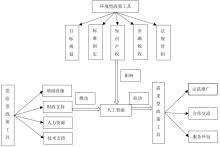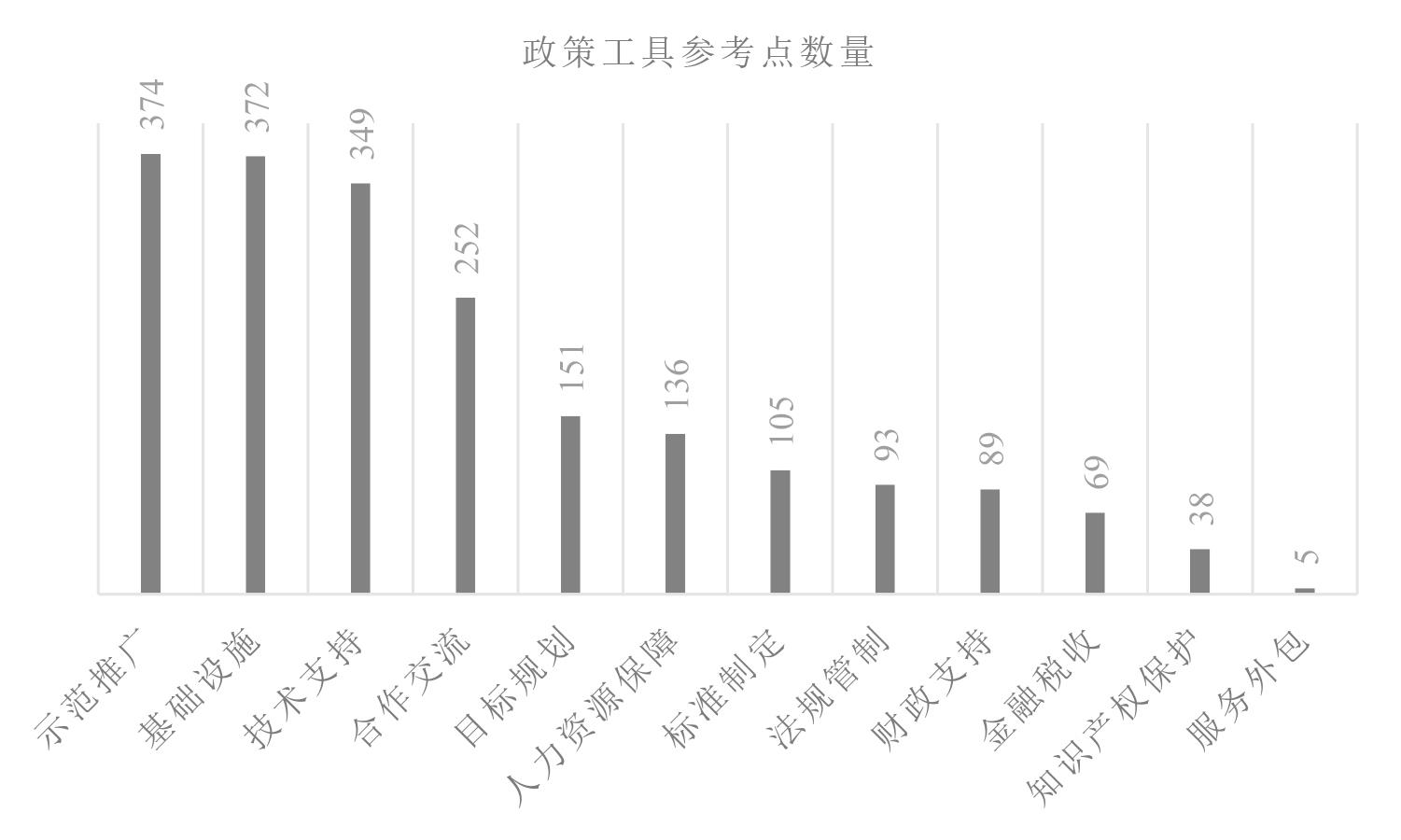| 1 |
EYSENBACH G. The role of ChatGPT, generative language models, and artificial intelligence in medical education: A conversation with ChatGPT and a call for papers[J]. JMIR medical education, 2023, 9: e46885.
|
| 2 |
费艳颖, 刘彩薇. 负责任创新视角下我国人工智能产业政策的解构与重构[J]. 情报杂志, 2021, 40(7): 45-51, 57.
|
|
FEI Y Y, LIU C W. Deconstruction and reconstruction of China's AI industry policy from the perspective of responsible innovation[J]. Journal of intelligence, 2021, 40(7): 45-51, 57.
|
| 3 |
深圳市易行网数字科技有限公司. 2024人工智能发展白皮书[EB/OL]. [2024-04-20].
|
| 4 |
中华人民共和国中央人民政府. 国务院关于印发新一代人工智能发展规划的通知[EB/OL]. [2024-04-20].
|
| 5 |
北京市经济和信息化委员会. 北京市加快科技创新培育人工智能产业的指导意见[EB/OL]. [2024-04-20].
|
| 6 |
广东省人民政府办公厅. 广东省人民政府关于印发广东省新一代人工智能发展规划的通知[EB/OL]. [2024-04-20].
|
| 7 |
上海市人民政府. 上海市促进人工智能产业发展条例[EB/OL]. [2024-04-20].
|
| 8 |
陈庆云. 公共政策的理论界定[J]. 中国行政管理, 1995(11): 26-29.
|
|
CHEN Q Y. Theoretical definition of public policy[J]. Chinese public administration, 1995(11): 26-29.
|
| 9 |
杨佳雯, 赵志耘, 高芳, 等. 基于文本量化分析的中国省级人工智能政策布局研究[J]. 现代情报, 2022, 42(7): 125-135.
|
|
YANG J W, ZHAO Z Y, GAO F, et al. Research on China's provincial artificial intelligence policy layout based on text quantitative analysis[J]. Journal of modern information, 2022, 42(7): 125-135.
|
| 10 |
吕文晶, 陈劲, 刘进. 政策工具视角的中国人工智能产业政策量化分析[J]. 科学学研究, 2019, 37(10): 1765-1774.
|
|
LV W J, CHEN J, LIU J. A quantitative analysis of China's Artificial Intelligence industry policy from the perspective of policy tools[J]. Studies in science of science, 2019, 37(10): 1765-1774.
|
| 11 |
李良成, 李莲玉. 目标—工具—产业链三维框架下人工智能政策研究[J]. 自然辩证法研究, 2019, 35(10): 112-118.
|
|
LI L C, LI L Y. Research on artificial intelligence policies under tri-dimensional frame of objective-tool-industry chain[J]. Studies in dialectics of nature, 2019, 35(10): 112-118.
|
| 12 |
臧维, 张延法, 徐磊. 我国人工智能政策文本量化研究——政策现状与前沿趋势[J]. 科技进步与对策, 2021, 38(15): 125-134.
|
|
ZANG W, ZHANG Y F, XU L. Quantitative research on artificial intelligence policy text in China - Policy status quo and frontier trends[J]. Science & technology progress and policy, 2021, 38(15): 125-134.
|
| 13 |
毛子骏, 梅宏. 政策工具视角下的国内外人工智能政策比较分析[J]. 情报杂志, 2020, 39(4): 74-81, 59.
|
|
MAO Z J, MEI H. Analysis of domestic and foreign policies in artificial intelligence from the perspective of policy instruments[J]. Journal of intelligence, 2020, 39(4): 74-81, 59.
|
| 14 |
汤志伟, 雷鸿竹, 周维. 中美人工智能产业政策的比较研究——基于目标、工具与执行的内容分析[J]. 情报杂志, 2019, 38(10): 73-80.
|
|
TANG Z W, LEI H Z, ZHOU W. A comparative study of artificial intelligence industry policies in China and the United States: Content analysis based on objectives, tools and implementation[J]. Journal of intelligence, 2019, 38(10): 73-80.
|
| 15 |
单晓红, 何强, 刘晓燕, 等. “政策属性—政策结构” 框架下人工智能产业政策区域比较研究[J]. 情报理论与实践, 2021, 44(3): 194-202.
|
|
SHAN X H, HE Q, LIU X Y, et al. Regional comparative research on artificial intelligence industry policy under the framework of "policy attributes-policy structure"[J]. Information studies: Theory & application, 2021, 44(3): 194-202.
|
| 16 |
李明, 曹海军. 中国央地政府人工智能政策比较研究——一个三维分析框架[J]. 情报杂志, 2020, 39(6): 96-103, 53.
|
|
LI M, CAO H J. A comparative study of artificial intelligence policies of China's centraland local governments: A three-dimensional frame[J]. Journal of intelligence, 2020, 39(6): 96-103, 53.
|
| 17 |
ALLAM Z, DHUNNY Z A. On big data, artificial intelligence and smart cities[J]. Cities, 2019, 89: 80-91.
|
| 18 |
YANG H. Safety issues of artificial intelligence and policy responses[J]. The journal of Korean institute of communications and information sciences, 2018, 43(10): 1724-1732.
|
| 19 |
MADARIAGA L, NUSSBAUM M, MARAÑÓN F, et al. User experience of government documents: A framework for informing design decisions[J]. Government information quarterly, 2019, 36(2): 179-195.
|
| 20 |
KANKANHALLI A, CHARALABIDIS Y, MELLOULI S. IoT and AI for smart government: A research agenda[J]. Government information quarterly, 2019, 36(2): 304-309.
|
| 21 |
宋振峰, 宋惠兰. 基于内容分析法的特性分析[J]. 情报科学, 2012, 30(7): 964-966, 984.
|
|
SONG Z F, SONG H L. Characters analysis based on content analysis method[J]. Information science, 2012, 30(7): 964-966, 984.
|
| 22 |
FISS P C. Building better causal theories: A fuzzy set approach to typologies in organization research[J]. Academy of management journal, 2011, 54(2): 393-420.
|
| 23 |
SCHNEIDER C Q, WAGEMANN C. Set-theoretic methods for the social sciences: A guide to qualitative comparative analysis[M]. Cambridge: Cambridge University Press, 2012.
|
| 24 |
FISS P C. A set-theoretic approach to organizational configurations[J]. Academy of management review, 2007, 32(4): 1180-1198.
|
| 25 |
HOWLETT M. Policy instruments, policy styles, and policy implementation[J]. Policy studies journal, 1991, 19(2): 1-21.
|
| 26 |
何江, 闫淑敏, 谭智丹, 等. “人才争夺战”政策文本计量与效能评价——一个企业使用政策的视角[J]. 科学学与科学技术管理, 2020, 41(12): 52-70.
|
|
HE J, YAN S M, TAN Z D, et al. Text measurement and effectiveness evaluation on the talent policy of “the war for talent”: A perspective based on enterprise using policy[J]. Science of science and management of S & T, 2020, 41(12): 52-70.
|
| 27 |
MCDONNELL L M, ELMORE R F. Getting the job done: Alternative policy instruments[J]. Educational evaluation and policy analysis, 1987, 9(2): 133-152.
|
| 28 |
HOWLETT M, RAMESH M. Studying public policy: policy cycles and policy subsystems[J]. American political ence association, 2009, 91(2): 548-580.
|
| 29 |
ROTHWELL R, ZEGVELD W. Reindusdalization and technology[M]. London: Logman Group Limited, 1985: 83-104.
|
| 30 |
张越, 曹悦, 白晨. 人工智能颠覆性技术政策工具演变分析[J]. 情报科学, 2023, 41(10): 121-128.
|
|
ZHANG Y, CAO Y, BAI C. An analysis on policy instruments development of disruptive technology policies of artificial intelligence[J]. Information science, 2023, 41(10): 121-128.
|
| 31 |
段尧清, 陈婷, 刁斐, 等. 政策工具视角下我国省域数字政府高质量建设驱动路径研究[J]. 情报科学, 2023, 41(5): 124-130, 143.
|
|
DUAN Y Q, CHEN T, DIAO F, et al. The driving path of high-quality construction of provincial digital government in China from the perspective of policy tools[J]. Information science, 2023, 41(5): 124-130, 143.
|
| 32 |
RIHOUXB, RAGINC C. Configurational comparative methods: Qualitative Comparative Analysis (QCA) and related techniques[M]. Los Angeles: Sage, 2009: 19-32.
|
| 33 |
中国新一代人工智能发展战略研究院. 人工智能战略院发布《中国新一代人工智能科技产业发展2023》和《中国新一代人工智能科技产业区域竞争力评价指数2023》[EB/OL]. [2024-04-10].
|
| 34 |
宋世俊, 王崇鑫, 张华静. TOE框架下公共数字文化服务供给效率的提升路径研究——基于模糊集定性比较分析[J]. 情报资料工作, 2022, 43(6): 79-86.
|
|
SONG S J, WANG C X, ZHANG H J. Research on the improvement path of public digital cultural service supply efficiency under the framework of TOE: Based on the fuzzy-set qualitative comparative analysis[J]. Information and documentation services, 2022, 43(6): 79-86.
|
| 35 |
Ragin C C. Redesigning social inquiry: Fuzzy sets and beyond[M]. Chicago: University of Chicago Press, 2009.
|
| 36 |
WOODSIDE A G. Moving beyond multiple regression analysis to algorithms: Calling for adoption of a paradigm shift from symmetric to asymmetric thinking in data analysis and crafting theory[J]. Journal of business research, 2013, 66(4): 463-472.
|
| 37 |
MORENO F C, PRADO-GASCÓ V, HERVÁS J C, et al. Predicting future intentions of basketball spectators using SEM and fsQCA[J]. Journal of business research, 2016, 69(4): 1396-1400.
|
| 38 |
RAGIN C C. Set relations in social research: Evaluating their consistency and coverage[J]. Political analysis, 2006, 14(3): 291-310.
|
| 39 |
GRECKHAMER T, FURNARI S, FISS P C, et al. Studying configurations with qualitative comparative analysis: Best practices in strategy and organization research[J]. Strategic organization, 2018, 16(4): 482-495.
|
| 40 |
PAPPAS I O, WOODSIDE A G. Fuzzy-set qualitative comparative analysis (fsQCA): Guidelines for research practice in information systems and marketing[J]. International journal of information management, 2021, 58: 102310.
|
| 41 |
YAO Y B, ZHANG R S, YANG F, et al. Link prediction via layer relevance of multiplex networks[J]. International journal of modern physics C, 2017, 28(8): 1-24.
|
| 42 |
中国发展网. 深圳前海出台支持人工智能高质量发展高水平应用若干措施[EB/OL]. [2024-04-04].
|
| 43 |
南方日报网. 深圳加快推进人工智能全域全时场景应用女里创建人工智能先锋城市[EB/OL]. [2024-04-04].
|
| 44 |
广东省科学技术厅. 《广东省新一代人工智能创新发展行动计划(2022-2025年)》[EB/OL]. [2024-04-08].
|
| 45 |
上海市人民政府. 上海市人民政府办公厅印发《关于本市推动新一代人工智能发展的实施意见》的通知[EB/OL]. [2024-04-04].
|
| 46 |
张明, 杜运周. 组织与管理研究中QCA方法的应用: 定位、策略和方向[J]. 管理学报, 2019, 16(9): 1312-1323.
|
|
ZHANG M, DU Y Z. Qualitative comparative analysis(QCA) in management and organization research: Position, tactics, and directions[J]. Chinese journal of management, 2019, 16(9): 1312-1323.
|
| 47 |
辛本禄, 穆思宇. 战略创业理论视角下服务创新驱动机制研究——一个模糊集定性比较分析[J]. 科技进步与对策, 2023, 40(11): 112-121.
|
|
XIN B L, MU S Y. The impact of entrepreneurial orientation and dynamic capabilities on service innovation of manufacturing enterprises: A fuzzy set qualitative comparative analysis[J]. Science & technology progress and policy, 2023, 40(11): 112-121.
|








